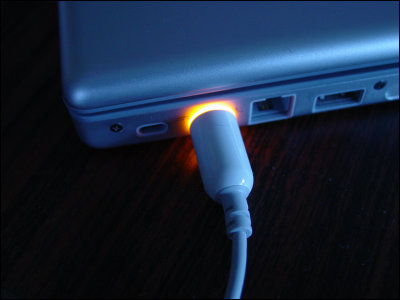A battery that can be recharged will be developed in "only a few seconds"

When charging a battery such as a smartphone, it took hours to fully charge, but a research team of Professor Ulrich Weisner of Cornell University developed a battery that makes it fully chargeable in a few seconds.
Block copolymer derived 3 - D interpenetrating multifunctional gyroidal nanohybrids for electrical energy storage - Energy & Environmental Science (RSC Publishing)
http://pubs.rsc.org/en/Content/ArticleLanding/2018/EE/C7EE03571C
The radical nanobattery that could charge your phone in five SECONDS | Daily Mail Online
http://www.dailymail.co.uk/sciencetech/article-5742379/The-radical-nanobattery-charge-phone-five-SECONDS.html
The structure of the battery developed by the research team has the following image structure. Place a self-assembling, three-dimensional helical structure material in the battery that constitutes the negative electrode (gray) and the positive electrode (blue), and place a nonconductive separator (green) between them. By making this structure, it is possible to charge and deliver energy using thousands of nanoscale pores present in each electrode.

A thin film of carbon is used for the negative electrode and it seems that there are thousands of pores on the order of 40 nanometers. The research team built up a holeless layer by covering these pores with a 10 nanometer separator that is insulating and capable of passing ions. If this pore is left behind, the research team says, "Clogging the hole is an important factor, as it will cause a fire in smartphone and other devices."
Also, the positive electrode part of the battery can accept electrons, sulfur which is a substance which does not pass electricity is used. According to the research team, sulfur is using only a separator that can not fill all the pores. Thus, the remainder is known as polyethylenedioxythiophene (PEDOT)Conductive polymerI fill the pores with.
According to Mr. Wizner, "By reducing the structure of the battery to nanoscale, it is possible to drastically increase the power density, and we can extract energy in a much shorter time than conventional batteries," said Wizner. He also stressed that there are great advantages Also, Mr. Wizner says "nanosecond advantage is in the charging time of the device as well" It is possible to charge a fraction of a second, perhaps even more quickly ".
Related Posts:
in Science, Posted by darkhorse_log






